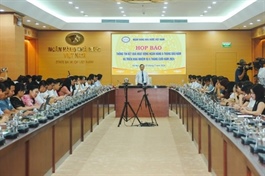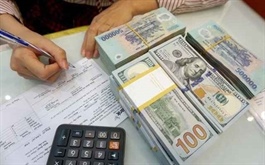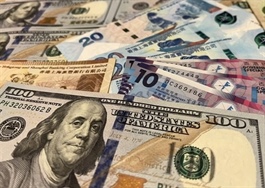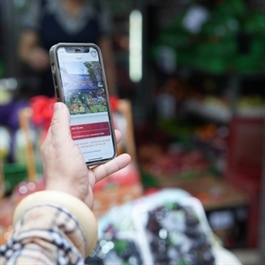Bank system forecast to overcome pressure
Bank system forecast to overcome pressure
The banking system in the second half of the year is projected to overcome inflationary pressures and support credit growth due to the combined effects of supportive factors.

In a June credit trend survey of financial institutions published last week, the State Bank of Vietnam (SBV) stated that factors influencing credit demand include economic growth trends, interest rate movements, adjustments in lending rates by credit institutions, import-export dynamics, improvements in service quality, and enhancements in loan products positively impact the increased demand for credit among businesses and individuals.
“In the last six months of 2024, an easier credit standard is expected by many credit institutions compared to the first half of the year. It is anticipated that there will be easy money across all customer segments and most sectors,” it said.
“Credit institutions expect to ease credit standards due to the favourable macroeconomic outlook and the positive effects of government policies, sectoral development guidance, and credit management directives from the government and the SBV.”
However, potential negative factors affecting credit demand in the near future include adverse developments in the real estate market, customers’ ability to utilise alternative financial resources, and decreased consumer confidence, indicated the survey results.
MSB is actively supporting clients in seizing opportunities and advancing agricultural production and business with promotional programmes offering interest rates starting at just 7 per cent per annum, catering to diverse needs from production and business to consumer spending.
Notably, loan limits can reach up to over $366,000, financing up to 95 per cent of capital utilisation plans for asset investment and working capital needs, with no prepayment penalties.
VIB is also aligning with the anticipated demand in the real estate market for the last six months of the year, targeting high-quality customer segments.
It has launched a home loan package with a total limit of $1.25 billion and competitive interest rates starting from 5.9 per cent per annum. Customers transferring from other banks to VIB will receive an additional 0.4 per cent interest rate reduction.
Le Ngoc Lam, CEO of BIDV, said that this bank will continue to implement measures to boost credit growth in the last six months of the year; organise meetings, dialogues, and connections between businesses and banks to identify and address difficulties; and continue to deploy credit packages and reduce interest rates to support credit growth according to SBV programmes and directives.
Regarding inflation in the last six months of the year, BIDV’s report indicates that inflationary pressure in Q2 is rising, with the consumer price index (CPI) averaging a 4.4 per cent increase compared to the same period last year, the highest since Q4 of 2022.
Specific increases include 7.63 per cent in medical care, driven by new medical service pricing, 8.15 per cent in education due to rising tuition fees, and a strong 9 per cent increase in household electricity prices due to higher demand and adjustments in electricity pricing by Vietnam Electricity.
“When inflation rises, the increasing prices of goods and services reduce the value of money, prompting individuals and businesses to spend more to avoid losing value. This heightened demand for money leads to higher interest rates to balance the money supply and demand,” said economist Dr. Nguyen Tri Hieu.
As interest rates rise, the cost of borrowing for businesses and consumers also increases, which reduces the purchasing power in the economy and subsequently lowers consumption and production demand, Hieu added. “When consumption and production demand decline, the prices of goods and services also decrease, helping to curb inflation,” he said.
Additionally, food and beverage prices increased by 4.48 per cent, due to high prices of foodstuffs compared to last year (15 per cent increase) and a rise in pork prices in Q2.
Dr. Can Van Luc, chief economist of BIDV, said inflationary pressure in the last six months is expected to be higher than in the same period of 2023 due to cost-push factors.
“Particularly, high energy prices, raw material costs, logistics expenses, and adjustments in state-managed prices such as electricity, tuition fees, and minimum wages from July 1 will contribute to this trend. Additionally, the increase in money supply is expected to be higher along with economic recovery,” he predicted.
The inflation target for this year is set between 4.5 and 5 per cent, while the CPI has already risen by 4.3 per cent by the end of Q2, raising the need to adjust inflation rates to support the economy as inflation and interest rates are closely linked.
Nguyen Ba Hung, principal country economist from the Asian Development Bank (ADB) in Vietnam, told VIR that policymakers will need to balance objectives between controlling inflation and promoting economic growth.
“For the first half, although the inflation rate is 4.3 per cent, examining monthly inflation contributions shows that the rise is mainly from the end of 2023, with only 1.24 per cent of the 4.3 per cent total coming from the first half of this year,” Hung said. “These figures suggest that while inflation seems higher compared to last year, with current growth conditions, monthly price increases will not be excessively volatile, making a significant inflation surge unlikely.”





























